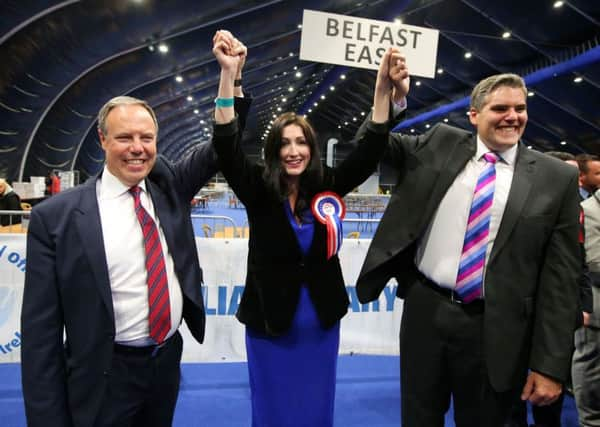Ben Lowry: The ban on double jobbing by politicians has been a complete failure


It has failed, yet there is little sign that there will be any rethink.
In fact this column seems to be almost the only place where the matter is even discussed.
Consider first of all the most absurd aspect of the ban.
Advertisement
Hide AdAdvertisement
Hide AdBeing a councillor in Northern Ireland is a part-time commitment. Necessarily therefore, unless a councillor is independently rich, they need a full-time job — particularly those who are raising a family.
Yet the one full-time job that a councillor in Northern Ireland cannot have is the one that is most relevant: that of a full-time politician.
A councillor cannot be a member of Stormont, of Westminster or of the Strasbourg parliament.
Yet they can be a doctor, teacher, physicist, mechanic, computer programmer, lawyer, cleaner, etc.
Advertisement
Hide AdAdvertisement
Hide AdOne reason for the double jobbing ban was to increase the number of people in politics, rather than having a smaller number of people hog many of the jobs.
That is a nice idea in theory and it might even work in the long term if we had a more mature and stable political system. But we don’t.
Stormont was in abeyance from 1972 to 1998, apart from two failed attempts at devolution in the mid 1970s and mid 1980s.
Since 1998 it has had periods of full or de facto suspension.
Advertisement
Hide AdAdvertisement
Hide AdOne consequence of that is that he have had bursts of elections. When a politician suddenly loses a council, assembly or Westminster seat in such a contest there is often no route back to politics. The small pool of Northern Irish folk who are both civically minded and politically involved gets even smaller.
Some determined people, such as Danny Kinahan, spend months or even years outside politics, patiently waiting for the next council or Stormont or Westminster poll. But others leave politics altogether.
Lots of people will have no sympathy for politicians who lose their role. But are those same critics then prepared to step up to the mark and stand for election themselves, willing to give up their job if they win, and then run the risk of suddenly losing their seat and no longer having their old job to return to?
Because if people who refuse to take such risks fail to replace those who are, we will be left with bad politicians and bad governance.
Advertisement
Hide AdAdvertisement
Hide AdConsider what could happen in the coming election. Emma Little-Pengelly, Nigel Dodds and Gavin Robinson could all lose their seats.
If so then unionism will have lost three lawyers at Westminster at this critical time in British history.
Matters such as the Withdrawal Agreement or the legacy bill are complex and need smart people to scrutinise them.
Non unionists will be untroubled by a decline in the calibre of unionism, but the small talent pool affects all ideologies. Sinn Fein, for example, can hardly afford to lose any of its talent.
Advertisement
Hide AdAdvertisement
Hide AdThat party, however, is happy for Northern Ireland not to exist and it boycotts Westminster, so it has less to fear from a double jobbing ban.
Most of the main parties seem implicitly to accept a problem with the double jobbing ban.
If Naomi Long fails to become East Belfast MP and Brexit happens in January, ending her time as MEP, then presumably her Stormont replacement Máire Hendron will step aside to facilitate a return as MLA.
It would be a reasonable thing to do, enabling the Alliance leader to have a berth in an elected body.
Advertisement
Hide AdAdvertisement
Hide AdSimilarly Ms Little-Pengelly might be given a Stormont seat if she ceases to be South Belfast MP.
But why not just remove the ban, to avoid such musical chairs?
Some of our most famous and effective Northern Ireland politicians over the decades, such as Seamus Mallon and Peter Robinson, were elected to more than one chamber.
I would allow politicians to stand for multiple roles and let voters decide whether they have too much on their plate. Anyone elected to a dual or treble mandate would only get one salary (the highest) and one set of expenses (also the highest).
Advertisement
Hide AdAdvertisement
Hide AdMeanwhile, salaries for politicians should increase but expenses (for offices etc) should be cut.
Currently the (at times selfish) professional classes spurn politics due to what they deem the low pay.
Not only are the financial rewards for politicians modest, they have no job security and accept burdens such as the stigma of revealing their views in a divided society (something most people do not do).
Politicians who persuade voters to elect them to multiple posts should be allowed to keep them.
• Ben Lowry (@BenLowry2) is News Letter deputy editor